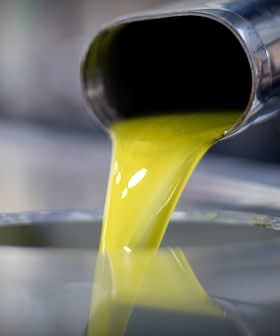Study Sheds Light on Environmental Impact of Global Food Production
Meat production from cows and pigs, and rice, wheat and seed oil crop production have the worst environmental impacts.
New research published in Nature Sustainability examines the environmental impacts of global food production, with a focus on freshwater consumption, greenhouse gas emissions, habitat disturbance, and nutrient pollution. The study found that meat production and rice, wheat, and oil crops have the worst environmental impacts, and that the U.S., China, India, Brazil, and Pakistan account for half of the global environmental impact of food production. Lead author Ben Halpern hopes the research will guide policymakers and consumers towards more sustainable food choices.
New research published in Nature Sustainability details the impacts of global food production on the environment.
Its lead author believes that the four-year investigation – which used a 2017 United Nations report to examine nearly 99 percent of global food production on land and sea – offers people a way to evaluate how their eating patterns affect the planet and a sustainable pathway to fighting hunger.
Annual crops take a lot more water and a lot more land, so they are likely to have higher environmental pressures than olive oil.
“This information helps us think better about the food we eat and the environmental pressure it has on our planet,” Ben Halpern, the director of the University of California-Santa Barbara’s National Center for Ecological Analysis and Synthesis, told Olive Oil Times. “The difficult news is it takes a little bit of work to think carefully about your diet.”
Using freshwater consumption, greenhouse gas emissions, habitat disturbance and nutrient pollution, the researchers compared the cumulative environmental impact of producing one pound or kilogram for a wide range of foods.
See Also:Hot Weather Weakens Plant Immune System, Study FindsHowever, Halpern said that the team could not consider every environmental factor, such as deforestation, pesticide use and soil fertility degradation, due to a lack of data. Additionally, positive environmental impacts, such as the sequestration of carbon dioxide by tree crops, were not considered.
“What we have here is a conservative estimate of those pressures because there are important factors missing,” he said.
The study’s results demonstrated that meat production from cows and pigs and rice, wheat and oil crop production have the worst environmental impacts. However, how they negatively impact the environment is very different.
The researchers found that 60 percent of the cumulative impact of raising cattle for beef comes from greenhouse gas emissions, with another 31 percent attributed to nutrient pollution and feed production.
Meanwhile, most of the impacts of rice and wheat crops resulted from habitat disturbance and the immense amount of fresh water used.
Overall, global food production uses about 50 percent of Earth’s habitable surface area, more than 70 percent of available freshwater and emits between 23 and 34 percent of human-caused greenhouse gas emissions.
“Unfortunately, we weren’t able to disaggregate the information into specific products,” Halpern said. As a result, olive oil production was grouped into a larger category with canola, cotton seed, sesame seed and sunflower oils.
“We don’t know the individual contribution of each of those oil types because they’re not reported,” he added.
However, Halpern said the scale of production is an important factor to keep in mind, as widely planted crops will take up more resources.
As a result, he suggested that olive oil production has a relatively low environmental impact compared to other intensively grown oilseed crops.
“Annual crops take a lot more water and a lot more land, so they are likely to have higher environmental pressures than olive oil,” Halpern said.
While the researchers did not take carbon sequestration into account, previous studies have found that all three categories of olive groves – traditional, high-density and super-high-density – act as carbon sinks.
In a 2021 study, researchers from the University of Jaén, Spain, found traditional rainfed olive groves sequester an estimated 5.5 kilograms of carbon dioxide for each kilogram of olive oil produced. This figure falls to 4.3 in irrigated olive groves.
Meanwhile, high-density and super-high-density olive groves sequester 2.7 kilograms of carbon dioxide per kilogram of olive oil produced.
Along with studying the impacts of each type of food production on the environment, the researchers also looked at food production impacts in each country.
See Also:Researchers Find a Way to Expedite PhotosynthesisThey found that five countries account for half of the global environmental impact of food production: the U.S., China, India, Brazil and Pakistan.
The researchers also found that countries produce the same food with different environmental impacts.
For example, they found the U.S. is 2.4 times more efficient than India at producing soy due to the use of technology to reap higher yields with fewer greenhouse gas emissions. The U.S. is the world’s largest soy producer, and India is the fifth-largest.
A similar trend was seen for demersal fish, which live and feed on the ocean floor, with Russia harvesting these fish 1.5 times more efficiently than China and 1.9 times more efficiently than Brazil.
“That’s one of the really powerful things we’ve done with these analyses by being able to map where things occur and the differences in the environmental pressures in production in different places,” Halpern said.
“Each country has differences in how good or bad they are at producing food,” he added. “So you can start understanding those differences and maybe make choices based on those differences.”
Halpern originally started the project to satiate his innate curiosity about the environmental impact of his diet.
After reading myriad news reports about the significant impact of meat production on greenhouse gas emissions, he became a pescatarian.
However, he quickly realized that while many of the news reports were based on scientific studies, none of them took into account the other environmental impacts of food production.
Now that this study is complete, Halpern hopes it will help guide policymakers and individual consumers to make informed decisions about sustainable food production.
“It would be wonderful if our work can help inform changes to the Farm Bill or, at an international level, trade policy that structures incentives for different food production,” he said.
“If we care about a sustainable food system and healthy people, we need to rethink a lot of the details [about where and how food is produced],” he added. “If our results could help inform some of those changes, that would be a profoundly welcome outcome.”
Halpern is currently following this research up with another study on the environmental justice implications of the impacts of food production.
“We hear this a lot in terms of like factory pollution as an example of where these harmful human health outcomes are disproportionately affecting minorities and underrepresented groups,” he said.
“Our work is starting to explore if or how these environmental food pressures may be having similar consequences for people around the planet,” Halpern concluded.
Share this article









